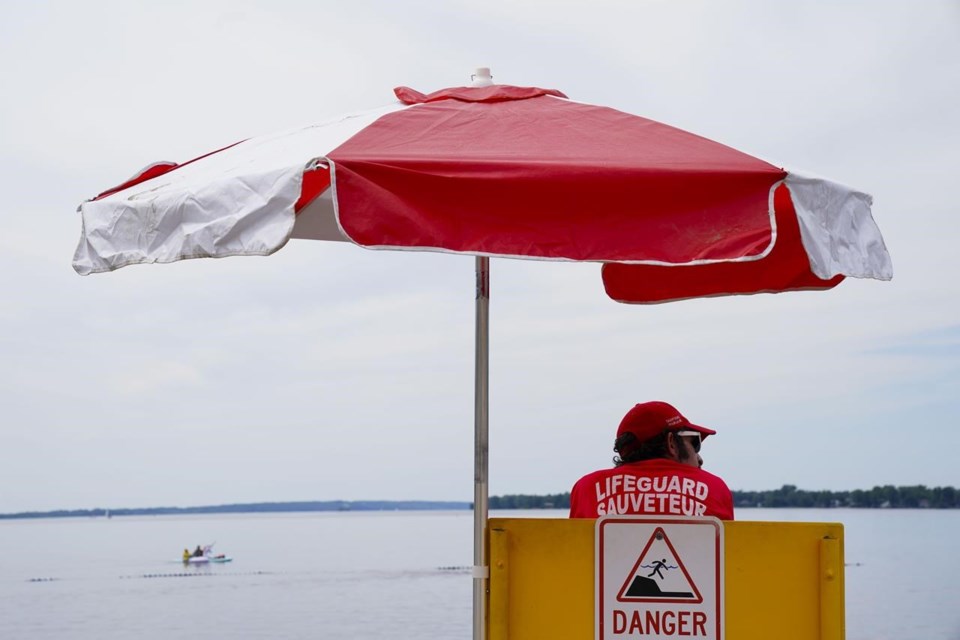Anyone heading out on the water this long weekend is being urged to leave their floaties on the shore.
The Ontario chapter of the Lifesaving Society said floaties, or inflatables that come in a wide range of shapes and sizes, pose a risk when taken out by swimmers in waterways.
Stephanie Bakalar, spokespersonfor the organization that works to prevent drowning, said inflatables may be popular but are meant for pools or to be secured firmly to a dock.
“They've really done a good job marketing these floaties and creating them to look fun, and that's fine for a pool environment,” Bakalar said. “But what people don't realize is that when you take those into an open water environment you're going to get pulled by the wind very quickly.”
The majority of drownings in Ontario happen in open water settings and people can overestimate their ability to swim to safety, she said.
Based on most recent data from the office of Ontario's Chief Coroner, the Lifesaving Society says 46 per cent of drownings happen in lakes and ponds.
There have been a lot of instances this summer of people on floaties without life jackets, creating a dangerous situation, Bakalar said.
Lakes and rivers are unpredictable due to strong currents, waves and winds, making it easy for inflatables to drift into deep waters, Ontario Parks wrote in a blog.
The Great Lakes especially have a lot of waves and motion, Bakalar said.
“Whether you're in an inflatable or you're just swimming, it can be very dangerous. So if you're gonna swim in open water, we do recommend that you swim where there are lifeguards.”
Ontario Provincial Police Sgt. Byron Newell, a team leader in the east region, said police have seen an increase in calls involving inflatables floating into waterways and away from safe swim areas.
“You are basically out drifting on the waterways and it's hard to control where you go. So, you could drift into a number of different hazards and (cause) a puncture," Newell said.
If an inflatable ends up in open water, Newell said it technically becomes a vessel, which would be subject to rules around having safety equipment including life jackets, visual signalling devices and a paddle or anchor on board.
Earlier this week, Hamilton police found the body of a 14-year-old boy who went missing in Lake Ontario after a group of youth took an inflatable out on the water.
Newell said Ontario waterways patrolled by the OPP have surpassed last year's drownings already. Thirteen drownings have occurred to date this year, surpassing last year's total of nine fatal drownings.
Newell said over a 10-year period, 86 per cent offatal drowning victims were not wearing a life jacket.
Officials are reminding those out on the water this long weekend to wear a life jacket and not consume alcohol while on open water.
This report by The Canadian Press was first published Aug. 4, 2023.
Nairah Ahmed, The Canadian Press




